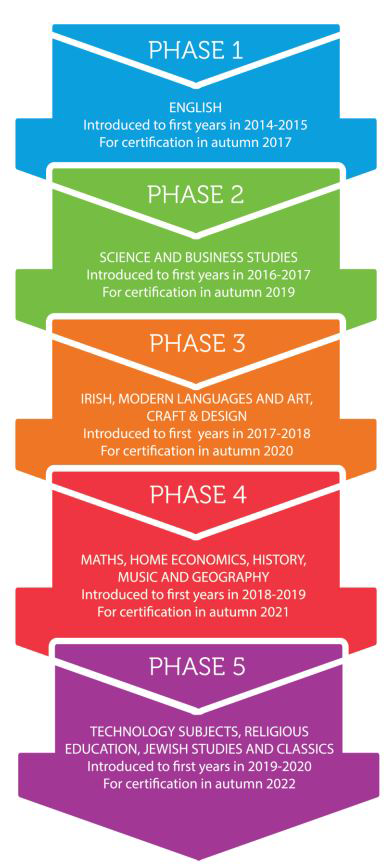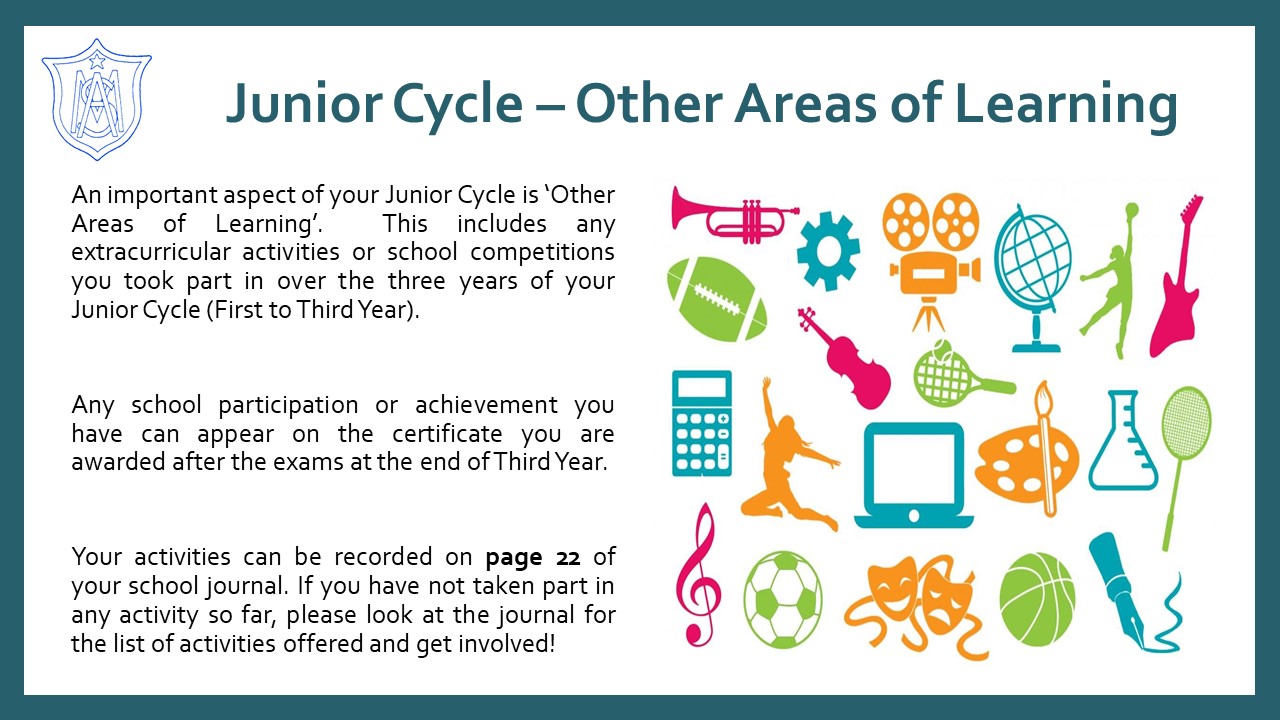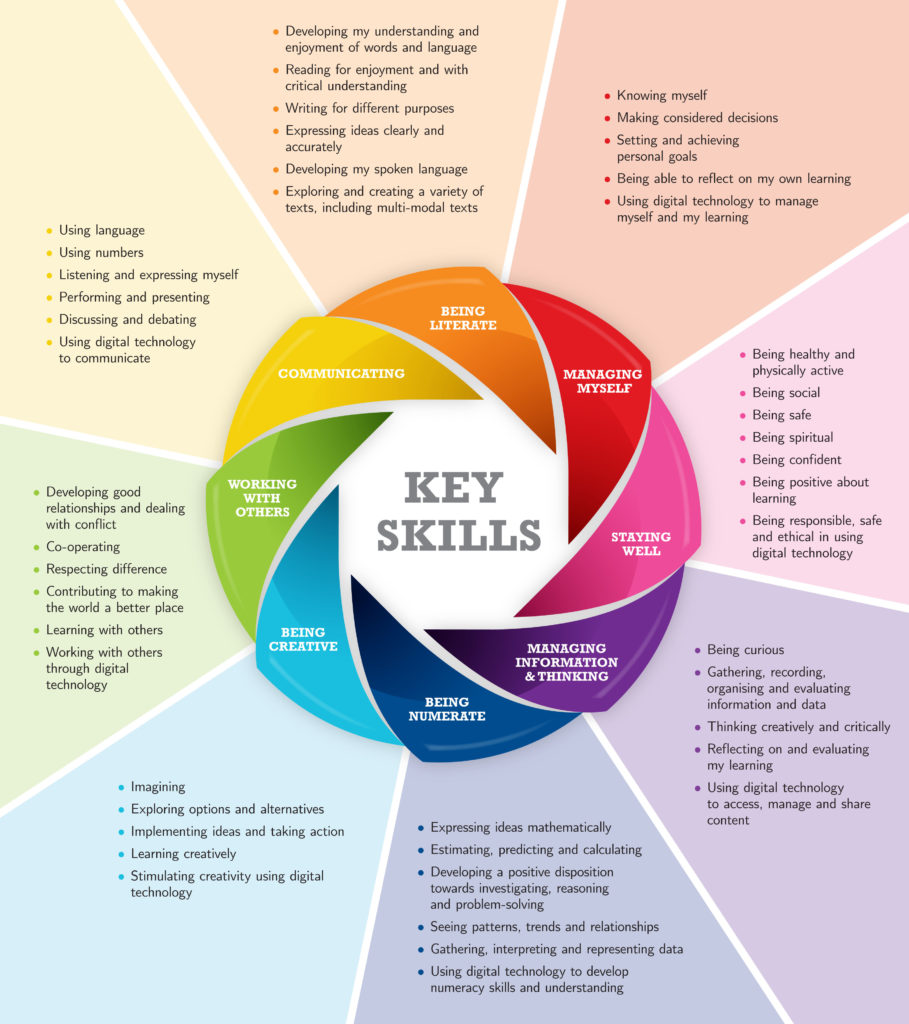The introduction of the Junior Cycle began in September 2014. The vision of this revised programme is to ‘place students at the centre of the educational experience, enabling them to actively participate in their communities and in society and to be resourceful and confident learners in all aspects and stages of their lives.’ It is important to highlight that the new subject specifications are being implemented in schools on a phased basis. This timeline is clearly outlined in the table below.

Subjects Offered to Junior Certificate students |
||
|
Art |
Geography | Music |
| Business Studies | History | Physical Education |
| CSPE | Home Economics | Religious Education |
|
English |
Irish |
Science |
| French | Mathematics |
SPHE |

The Junior Cycle – Grading System
The manner in which the phased-in Junior Cycle subjects are graded has changed.
Traditional grades will now be replaced by the following:
| Percentage (%) | Grade |
| ≥90% – 100 | Distinction |
| ≥75% < 90 | Higher Merit |
| ≥55% < 75 | Merit |
| ≥40% < 55 | Achieved |
| ≥20% < 40 | Partially Achieved |
| ≥0% < 20 | Not Graded |
Levels for Subjects
- First, Second, and Third Year Students may still opt to undertake English, Irish and Mathematics at Higher or Ordinary Level while all other subjects must be taken at Common Level.
Classroom Based Assessments (CBAs)
- Students will also have to complete two CBAs (Classroom Based Assessments) in each Junior Cycle subject. One of the CBAs will take place in Second Year and the other in Third Year. There is one exception however, with both CBAs in Irish taking place in Third Year.
- CBAs will be undertaken according to a national timetable over a defined time period, as set by the NCCA. CBAs will be carried out in class and will be supervised and assessed by the student’s subject teacher. They will be assessed by the teacher, using the features of quality and assessment guidelines from the NCCA.
CBAs will be assessed using the following descriptors:
- Exceptional
- Above Expectations
- In line with expectations
- Yet to Meet Expectations





